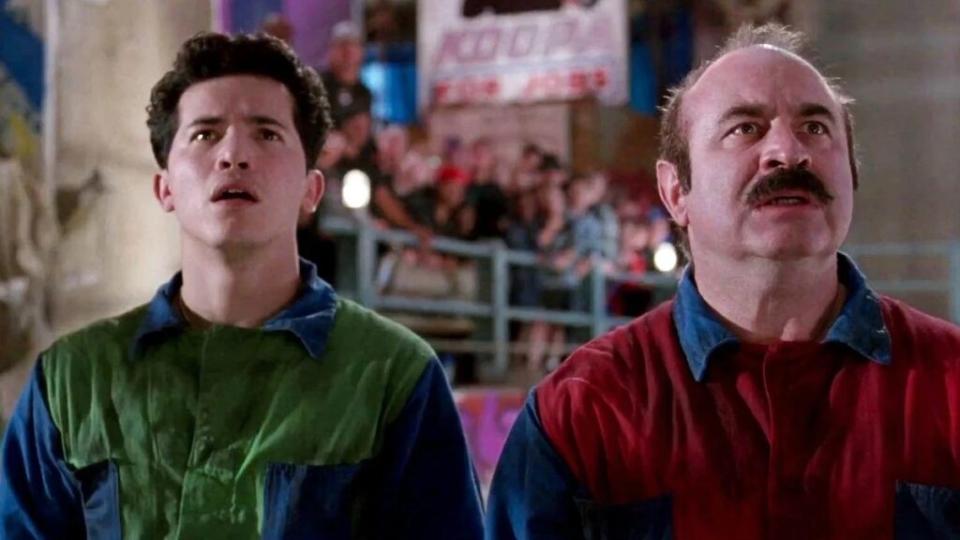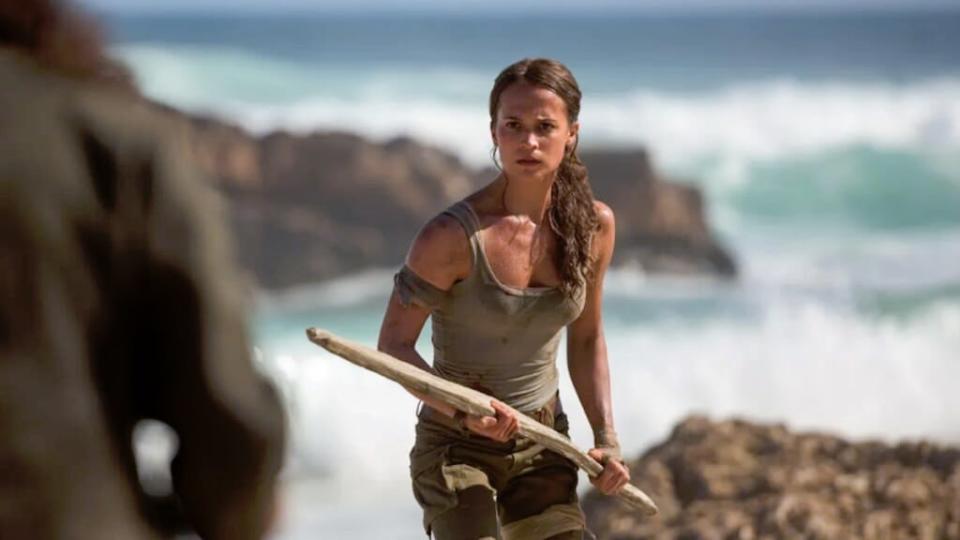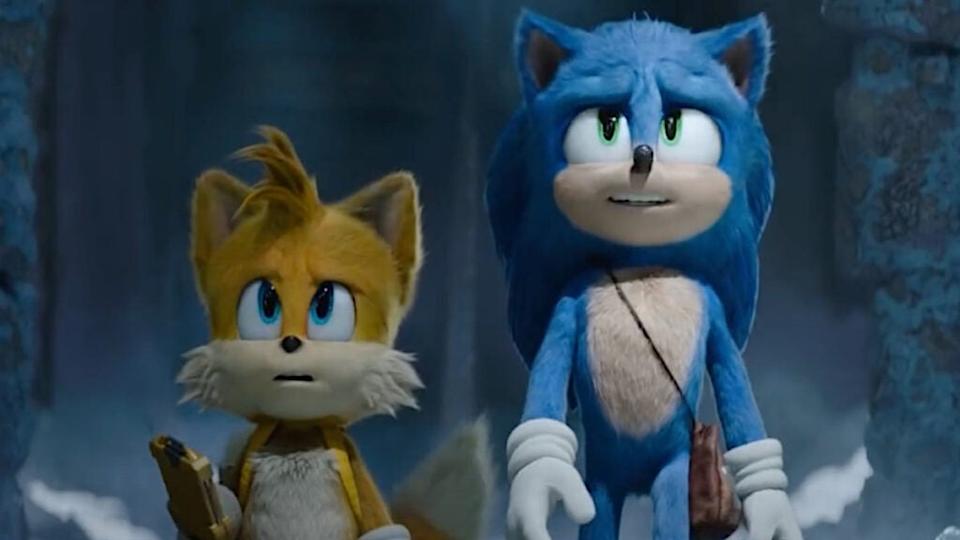For Hollywood, Video Games Are the New Comic Books
- Oops!Something went wrong.Please try again later.
“The Super Mario Bros. Movie” promises to put Universal on the animation throne long occupied by Disney. It also shows that video games, not comic books, are where Hollywood should be sniffing around for new franchises.
With a comparatively modest $100 million budget, Universal and Illumination’s video game adaptation shattered box office records for animated movies, earning $204 million domestically and $376 million worldwide over the long Easter weekend. But the movie also set a record for box office derived from a character that audiences likely first encountered in an arcade or on a console.
“I think we are going to see a lot more video games being made into movies,” Gerber Kawasaki CEO Ross Gerber told TheWrap. “’Super Mario Bros.’ is huge and kids relate to gaming characters. I expect way more of this.”
There’s only so long that studios can get away with rebooting “Spider-Man” or spinning off of “Star Wars.” Comic books, especially outside of the Marvel and DC universes, haven’t been fruitful, and YA fantasy adaptations seem better suited for streaming shows. The new blockbusters need to come from somewhere, and the vivid worlds and sharply drawn characters of video games are primed to burst onto bigger screens.
Also Read:
Ben Affleck and Matt Damon’s ‘Air’ Shares Amazon’s Streaming Wealth | Analysis
Video game fandom is mighty and growing
Video game-based movies have a distinct advantage over material based on even the most popular comic books: Far more people play video games than read comic books. The video game business is bigger than Hollywood, in fact.
The best-selling comic book of all time, the first issue in Jim Lee and Chris Claremont’s 1990’s “X-Men” relaunch, sold around 8.2 million copies. The best-selling video game, “Minecraft,” has sold 176 million units since 2009. Total revenue spent on video games and video game-related purchases in America grew from $17 billion in 2010 to a high of $51.1 billion in 2021. By contrast, domestic box office last year was just $7.3 billion.
The current gaming crowd is more diverse than the hardcore gamer stereotype of old: 42% of America’s 189 million gamers are girls and women. Many take an active interest in their favorite games and root for the marquee characters that feature in them. Think Solid Snake in the “Metal Gear” series, Lara Croft from the “Tomb Raider” franchise or Nathan Drake from “Uncharted.”
Michael Lee, a vice president at Activision Blizzard who helps steer the company’s gaming community of 400 million players, told TheWrap that video game-based movies are positioned to thrive “not only because it’s IP, but because it comes with hundreds of millions of users that are that are not just nostalgically coming out of the woodwork but actively engaging with these franchises.”

The curse of the video game movie
Why hasn’t Hollywood leaned in more to video games? Part of the reason is the uneven performance of early attempts, when the video game market and audience were smaller. The original live-action “Super Mario Bros.” flick and the mostly forgotten “Double Dragon” got the video game-based movie off to a terrible start. The first real hits were “Street Fighter” in 1994 ($99 million on a $33 million budget) and “Mortal Kombat” in 1995 ($122 million on a $18 million budget).
Adapting a video game is no sure thing. The genre is littered with commercial whiffs like “Warcraft,” “Final Fantasy: The Spirits Within,” “Prince of Persia: The Sands of Time” and “Assassin’s Creed.” Most video-game-based movies earn mixed if not poor reviews. But if we’re going to go there, we need to talk about the superhero genre and “Morbius.”

An early perception that video-game movies were commercially doomed led to skepticism, with producers waiting to see signs that the risk was worth taking. Eventually, those data points emerged: Angelina Jolie’s “Tomb Raider” opened to $47 million, nabbing the sixth-biggest non-sequel debut ever as of June 2001. Fifteen months later, Paul W.S. Anderson’s “Resident Evil” revived the zombie genre and spawned a $1.2 billion-grossing, six-film franchise.
And video game-based movies have been on a roll since 2018. “Rampage,” “Sonic the Hedgehog” and “Pokémon: Detective Pikachu” have earned good-to-great global box office along with comparatively decent critical notices. Televised video game adaptations like “The Witcher,” “Halo” and “The Last of Us” have become prime currency in the streaming era.
Now that the plumbers have really unclogged the pipes, expect the video game adaptations to flow.
The franchises to come
“Like Marvel and DC comic books, video games come ready-made with franchise-friendly elements like marquee heroes and villains, ongoing conflicts and deepening mythologies,” a high-ranking studio executive told TheWrap.
The key is to do more than just slap a character up on the big screen.
Nintendo, which co-produced the new “Super Mario Bros.” movie, has more to offer. Shawn Robbins, chief analyst for Boxoffice Pro, called its game portfolio “ripe with properties that are fit for the big screen,” citing the potential of “Legend of Zelda” and more “Super Mario” spin-offs. He also noted Nintendo’s reputation for quality control, which might rankle partners but will likely please audiences. Insiders at rival studios nevertheless predict a “Zelda” movie could be next for Illumination and Nintendo to team up on.
Sony likewise has a huge library of video game characters — and it happens to own a major Hollywood studio. Its “Uncharted” grossed $405 million on a $120 million budget, partially because it sold a popular IP alongside a mix of cross-generational stardom via Tom Holland and Mark Wahlberg amid a throwback to the kind of real-world swashbucklers that had been put out to pasture as superheroes romped across the screen.

New Line’s “Rampage” sold Dwayne Johnson fighting giant monsters in a big city for a wild sci-fi action fantasy that worked with or without awareness of the 1980s arcade classic. Paramount offered a sincere kids flick starring a source-faithful Sonic the Hedgehog alongside Jim Carrey indulging in 1990s-era rubber-faced comedy for a sharp dose of multigenerational nostalgia.
“The Super Mario Bros. Movie” sold the popular studio behind “Minions” and “Sing” offering up a kid-friendly and source-faithful adaptation of the mother of all video game properties, with vocals provided by kid-friendly movie stars like Chris Pratt, Jack Black and Seth Rogen.
Some recent disappointments arguably just didn’t do enough with the material. “Warcraft” ($440 million, including $220 million in a front-loaded run in China and on a $165 million budget) sold the IP as the whole entree. Disney sold “Prince of Persia: The Sands of Time” ($335 million but on a $200 million budget) not as the first “Prince of Persia” movie but the next “Pirates of the Caribbean.”
Also Read:
How Dwayne Johnson Kneecapped ‘Black Adam’ and ‘Shazam 2’ While Trying to Take Over DC | Exclusive
An IP treasure trove or a trap?
Games could become a steady supply of what Hollywood now needs most — new, or at least somewhat new-to-cinema, feature film franchise options. There’s Lionsgate’s upcoming “Borderlands” and Warner Bros.’ eventual “Minecraft.” There’s even a live-action “Pac-Man” movie in the works.
One potential trap is that of the present-tense fan base, which may prize source fidelity over artistic quality. That’s where the large video game audience may prove a double-edged sword. Most people showing up to watch “Guardians of the Galaxy” never read the original comic books. The folks showing up for “Borderlands” or “Metal Gear” will have very strong opinions about what is or isn’t source-faithful.
A key to video game-movie domination could be Hollywood learning the right lessons from Marvel’s decade-long run at or near the top. As TV showrunner Cheo Hodari Coker noted in a conversation with TheWrap, Marvel chief Kevin Feige’s universe was successful partially because “it wasn’t afraid to embrace the specificity, even the weirdness, of a given comic book property.”
Also Read:
Superheroes Are Finally Losing Their Grasp on Moviegoers – and That’s Good for the Box Office
A mistake is taking video game IP and pretzeling it into generic action fantasies, as Hollywood did in trying to reshape tales of Robin Hood and King Arthur into superhero origin stories. The industry must use what makes each IP unique, even, weird and craft a genre film that, like “Deadpool,” “Wonder Woman” or “Black Panther,” feels special by virtue of the distinctive aspects of the source material. “The Super Maro Bros. Movie” is a smash hit both because it’s a “Super Mario Bros.” movie in ways specific to the game brand and because it appeals to audiences who might not even have played the game, but probably recognize Mario and Luigi.
A caution for producers rushing out to shop a video game project: Just because “The Super Mario Bros. Movie” is going to flirt with $1 billion at the worldwide box office doesn’t mean that the next batch of video game adaptations can be expected to earn similar amounts. None of the 1990s superhero movies topped the $411 million success of “Batman” and none of the 2000-era superhero flicks remotely approached the $821 million success of “Spider-Man.” A key element will be responsible budgeting for these films — closer to $100 million than $200 million on the first go-around.
Also Read:
‘Super Mario Bros.’ Proves That Universal Has a Box Office Gold Mine With Nintendo

